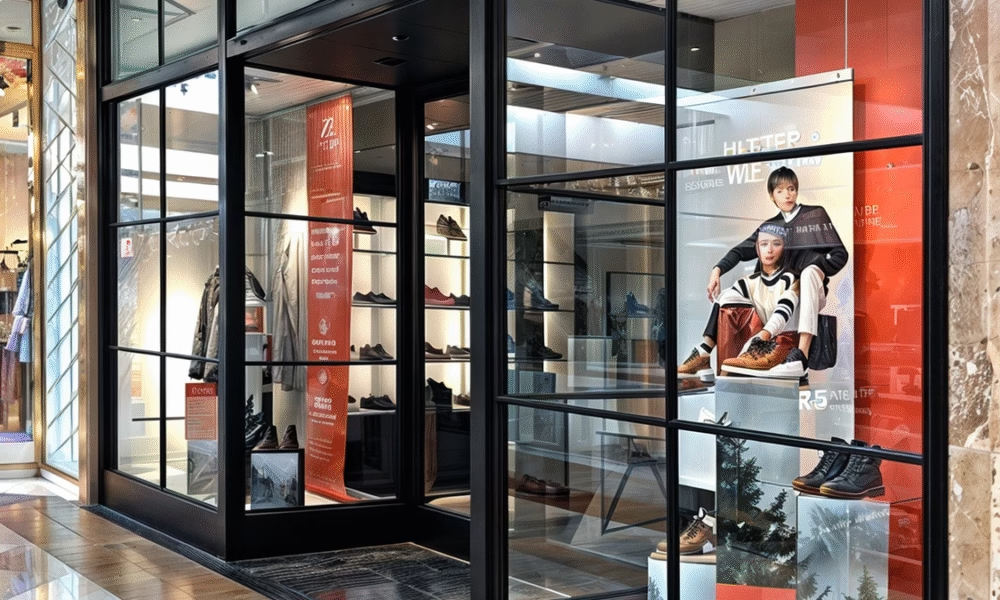It’s not enough to have a façade that looks beautiful and elegant: safety, efficiency, and durability depend on meeting recognized standards. A poorly installed or uncertified storefront can become a risk for customers, employees, and the brand’s reputation itself.
In the United States, organizations such as ASTM, ANSI, NFRC, UL, and LEED establish guidelines that ensure storefront systems meet requirements for resistance testing, energy performance, fire safety, and sustainability criteria.
In this article, we’ll highlight why certification and regulatory compliance are essential factors in any storefront project, and how working with certified providers can make the difference between a vulnerable business and one that is safe, efficient, and trustworthy.

What Does Certification Mean in Storefront Systems?
When we talk about certification in a storefront system, we refer to a process in which an independent organization validates that the materials, design, and installation meet specific standards of safety, quality, and performance.
This involves rigorous testing in areas such as:
- Structural resistance against impacts or extreme weather conditions.
- Energy efficiency, evaluating thermal insulation and solar control of the glass.
- Safety, verifying that the materials and installation reduce the risk of accidents or fires.
The difference between choosing a certified provider and one that is not can be enormous. While the former guarantees products tested under recognized regulations, the latter exposes the business to legal risks, safety issues, and financial losses in the event of failures.
It’s important to emphasize that certification should not be seen as a bureaucratic requirement: it is a seal of trust that ensures the storefront system is designed to last, to protect, and to comply with the standards that both the market and customers expect.
👉 You may also be interested in reading: What Is a Storefront System? One of the Keys to Your Commercial Success
What Are the Main Standards in the United States for Storefront Systems?
In the U.S. market, there are several organizations that regulate the quality and safety of architectural systems. For storefronts, PRL complies with key certifications that guarantee the performance and reliability of its products:
ASTM International
The most recognized standard in the glass and aluminum industry. Through rigorous laboratory testing, ASTM validates structural resistance, performance against impacts, and extreme weather conditions. Meeting ASTM standards means the storefront system is designed to withstand the most demanding commercial use.
NFRC (National Fenestration Rating Council)
Energy efficiency is an increasingly important factor in construction. The NFRC label certifies that systems meet criteria for thermal insulation, heat transfer, and solar control, helping reduce energy costs and improve interior comfort.
LEED (Leadership in Energy and Environmental Design)
In a market that demands sustainable solutions, PRL offers systems compatible with LEED certification, which recognizes projects that reduce environmental impact and promote responsible design. This makes the storefront an ally of green architecture.
Other Standards
There are also other relevant guidelines, such as ANSI (American National Standards Institute), which sets quality norms, and UL (Underwriters Laboratories), which focuses on fire safety testing. While not always required in every project, they complement confidence in performance and safety.
The ASTM, NFRC, and LEED standards are the pillars that ensure PRL’s storefront systems meet the highest levels of quality, efficiency, and sustainability, supporting both businesses and their customers.
Benefits of Working with Certified Providers
Choosing a certified provider not only guarantees product quality, it also offers strategic advantages for any business, and helps prevent accidents whenever possible:
✅ Safety for Customers and Employees: Certified storefront systems undergo testing to ensure impact resistance, structural stability, and risk reduction. This translates into safer spaces for both employees and visitors.
✅ Legal Compliance and Risk Reduction: By meeting recognized standards such as ASTM, NFRC, or LEED, companies avoid penalties, fines, or legal issues arising from non-compliance.
✅ Reputation and Brand Image: A business with a certified storefront conveys professionalism and trust. For customers, the façade becomes a symbol of quality and commitment to safety.
✅ Access to Larger-Scale Projects: In many cases, having certified systems is a mandatory requirement to participate in corporate, institutional, or large-scale projects, opening opportunities for growth and competitiveness.
Not having a certified storefront system can bring negative consequences that go far beyond aesthetics:
❌ Legal Risks and Fines: Installing systems without recognized certifications can lead to penalties or lawsuits in the event of accidents or regulatory non-compliance.
❌ Safety Issues: Glass or frames that do not meet resistance testing increase the likelihood of accidents, from breakage due to impact to structural failures that put both customers and employees at risk.
❌ Loss of Brand Trust: A façade that fails to meet standards conveys neglect and a lack of professionalism. This impacts customer perception and can reduce brand loyalty.
❌ Additional Costs: A system that does not meet quality standards may require frequent repairs, premature replacements, or even a complete renovation, generating higher long-term expenses.
A storefront system should not be evaluated solely on its appearance. The true difference between a successful project and a vulnerable one lies in compliance with certifications and standards that guarantee safety, efficiency, and trust.
Standards such as ASTM, NFRC, and LEED are the pillars that ensure the quality and performance of a system, while additional guidelines like ANSI and UL provide added peace of mind knowing that your investment is protected.
Ultimately, choosing a certified provider means investing in a safer, more competitive, and more reliable business. Your façade will not only attract customers but also support your reputation and the long-term sustainability of your brand.
👉 Contact us today and secure your project with certified storefront systems that meet the highest standards in the industry.